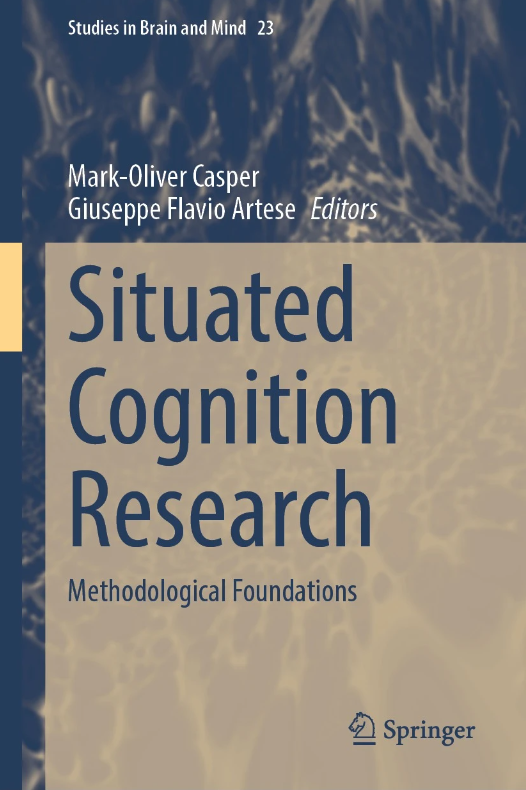Manuel Heras Escribano, investigador Juan de la Cierva-Incorporación del Departamento de Filosofía 1 y miembro de Filolab ha escrito el capítulo de libro “Ecological Psychology, Enaction, and the Quest for an Embodied and Situated Cognitive Science” para el libro “Situated Cognition Research. Methodological Foundations” (Springer). Este libro, editado por Mark-Oliver Casper y Giussepe Flavio Artese, ambos de la Universidad de Kassel (Alemania), es el primer volumen dedicado exclusivamente a discutir cuáles serían las aproximaciones metodológicas adecuadas para desarrollar una ciencia cognitiva plenamente situada. Otros autores del volumen son Julian Kiverstein, Michael Kirchhoff, Guilherme Sanches de Oliveira, Beate Krickel y Tony Chemero, entre otros.
A continuación ofrecemos el Abstract del capítulo de Manuel Heras Escribano:
This chapter evaluates which approach within 4E cognition is in a better position to offer a research program and a scientific framework for the embodied and situated cognitive sciences that could outcompete cognitivism once and for all. The main thesis of this work is that ecological psychology is in a better position to develop that scientific framework. This is because enactivism can be defined as a philosophy of nature rather than a scientific framework with its own research program (following Gallagher, 2017). This means that enaction did not develop its own scientific methods, models, and metrics for human in vivo experimentation, which are key aspects in order to offer a whole new scientifically feasible foundation of a new science of the mind from a purely embodied and situated perspective. Although I agree that a philosophy of nature is a necessary aspect for any general theory of cognition, it is not enough: we also need a research program and a scientific framework in order to establish a fully-fledged science of the mind. Ecological psychology, as I show in this work, includes a philosophy of nature and a research program, which makes it suitable to settle the foundations for a fully embodied and situated cognitive science. In conclusion, I think that everyone working on embodiment and situated cognition should follow the ecological lead.
Aquí podéis acceder al artículo en la página de Springer.

